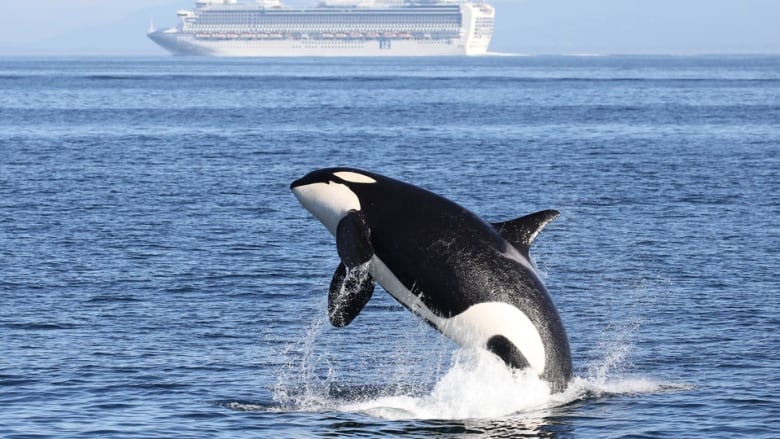Killer whale research gets $12M infusion from Canadian government
Funding dedicated to preventing collisions with orcas and to study impacts of noise and food availability

The Canadian government has announced more than $12 million in new funding for research aimed at protecting B.C.'s endangered southern resident killer whales.
Fisheries Minister Dominic LeBlanc was in Vancouver Thursday to unveil the cash infusion, which includes $9.1 million for developing and testing technology to better detect the orcas and prevent collisions with vessels.
Another $3.1 million will go toward research on how the whales react to underwater noise, and how they're affected by the decreasing availability of their prey.
"We have a responsibility to ensure that whales are protected for future generations, and we continue to consider all available options to further protect whales in our waters," LeBlanc said in a news release.

There are just 76 animals remaining in the southern resident killer whale population, and conservation groups have warned that the situation is now critical.
The new government funding includes $935,000 for University of Victoria projects that will look into how underwater noise from human activities affects the whales and their primary prey chinook salmon.
"We anticipate contributing significantly to understanding the stressors affecting these magnificent marine mammals and, ultimately, to mitigation measures to help ensure their long-term survival and success," UVic fisheries ecologist Francis Juanes said in a news release.
He's one of three researchers who plan to study the impact of noise on the ability of the whales to communicate with each other and find food, as well as how it affects salmonbehaviour and physiology.
Another component of the research will examine how to improvecurrent methods for measuring disturbance from marine vessels.

Researchers at the University of B.C. will receive $1.1 million of the new funding to study the abundance andquality of chinook, while Ocean Wise, the conservation organization that operates the Vancouver Aquarium, is set to receive $942,000 to assess the health and condition of the whales.
Another $200,000 will go to the Vancouver Fraser Port Authority to operate underwater listening stations that monitor noise levels from commercial vessels.












_(720p).jpg)


 OFFICIAL HD MUSIC VIDEO.jpg)
.jpg)



























































































